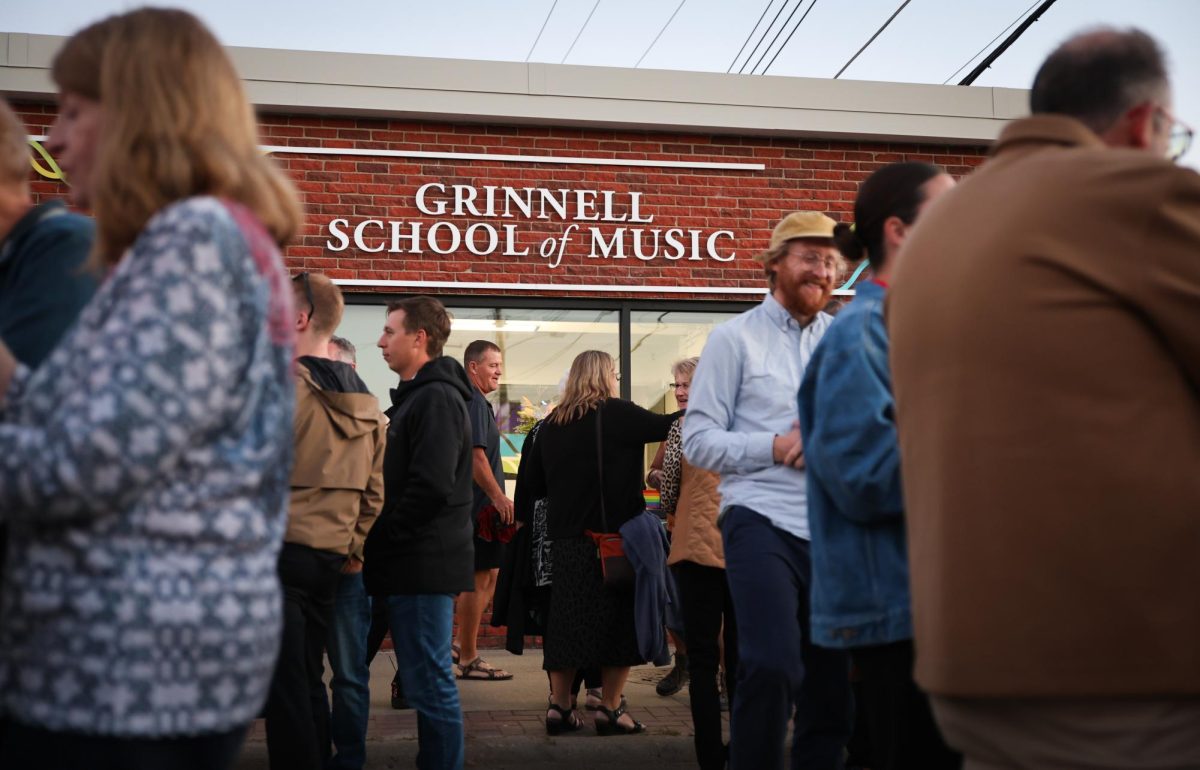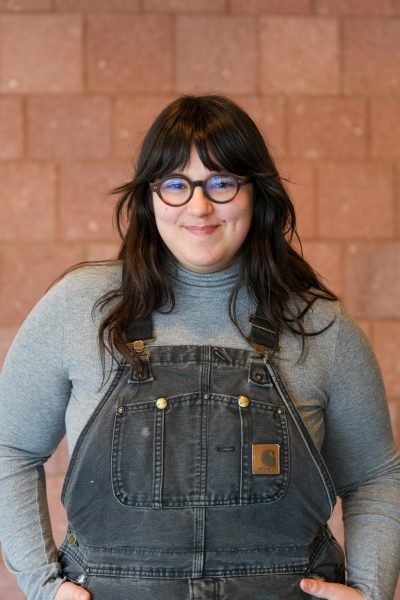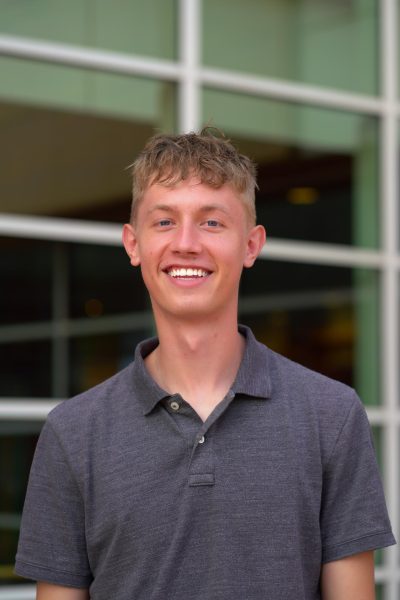720 Fifth Ave. is now the home of the Grinnell School of Music (GSoM), which celebrated its grand opening with a “Rock the Block” fundraising gala on Friday, Sept. 6.
Attendees of the event, among them College professors and community members, milled about the new facilities, poking their heads into the private studios and carrying plates of appetizers catered by local businesses including Pagliai’s, Grin City Bakery and I-80 Dhaba.
They perused a silent auction featuring University of Iowa swag and football tickets, as well as work from local artists like Joe Tuggle Lacina. They took pictures in front of the school’s brand-new mural, a vibrantly colored and whimsical scene by Des Moines-based artist Ally Frame, which features foxes and rabbits in overalls playing pink violins and blue cellos, as well as the message “Conduct Joy.”
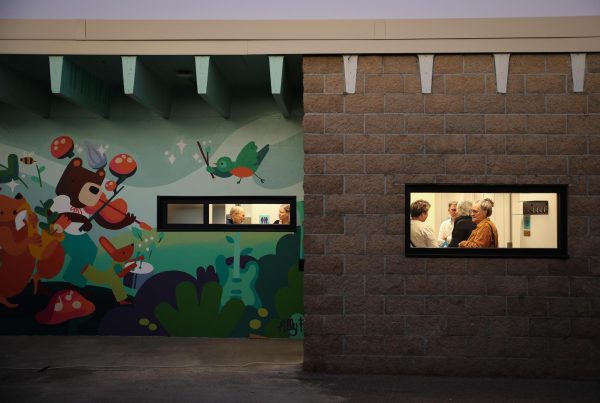
The new facility was made possible by a fundraising campaign that kicked off in May 2023, following GSoM’s incorporation as a nonprofit in July 2022. Erin Bustin, the school’s founder and executive director, had been fundraising behind the scenes, but she said that she knew her vision could become a reality when she secured a Community Catalyst grant through the Iowa Economic Development Authority.
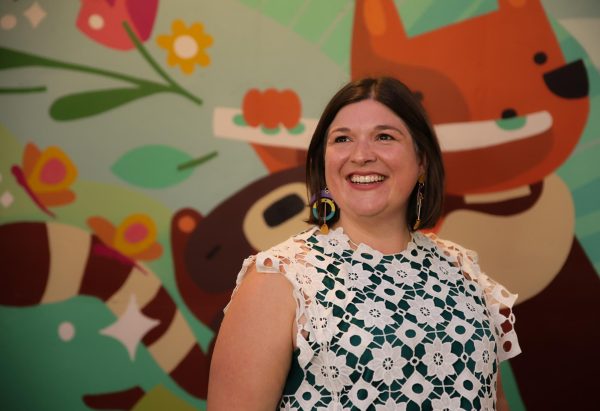
The award, designed to rehabilitate and reinvest in older buildings in small downtowns like Grinnell’s, covered 20 percent of construction expenses up to $100,000 matched by the state, essentially granting the project $200,000 towards construction. Bustin said that Theresa Pagliai, the building’s former owner, shared Bustin’s vision for an arts space and didn’t want to see the building get portioned out into offices.
“The thing with fundraising is it’s all about building a belief in your mission, and I’ll say that wasn’t that hard,” said Bustin.
Mark Laver, chair of the music department at the College, said that GSoM will hopefully change the way the College engages with the local community. Historically, many outreach efforts in the arts were the projects of individual professors, so if those professors took leave or left the College, the programs they had created were interrupted or disappeared entirely.
Laver said that GSoM’s stability as a fixture of the arts in the Grinnell community will allow for a relationship that transcends individual professors or administrators.
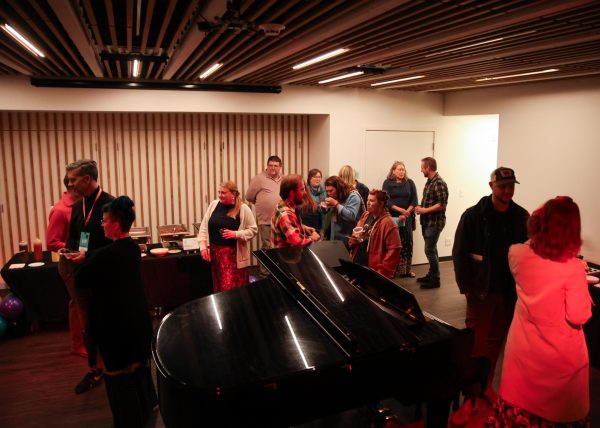
“To have an institutional partnership like this can really enable a long-term and sustained engagement that moves beyond the individual energies that are really meaningful but inevitably inconsistent, to something much more vibrant and much more generative than what any individual can do,” said Laver.
Among the fruits of that partnership are new opportunities for college students. At GSoM, music majors and musically motivated non-majors alike have completed internships in arts management and music education, learning concrete professional skills that will be directly transferable to future careers in the arts — an opportunity that Laver said is not available to many liberal arts students in rural settings like Grinnell’s, and was not available here either until GSoM.
Laver said that GSoM also makes working in Grinnell more feasible and desirable for the music educators who teach private lessons at the College, many of whom drive in from Des Moines or Iowa City. Now, Laver said, when potential instructors come to interview for a position at the College, he can also introduce them to Bustin and GSoM, where they might pick up a few extra hours of teaching in the evenings.
“With the price of gas being what it is right now, that’s the difference between being able to work here and not being able to work here,” said Laver.
As music educators, Grinnell community members, and husband and wife, Bustin and Laver share many values — among them, a belief in the importance of fostering a culture in which art and music thrive. “When artists can afford to live and work here, that makes our town better,” said Bustin. The Grinnell School of Music’s new permanent location will aim to attract those artists for years to come.

















































